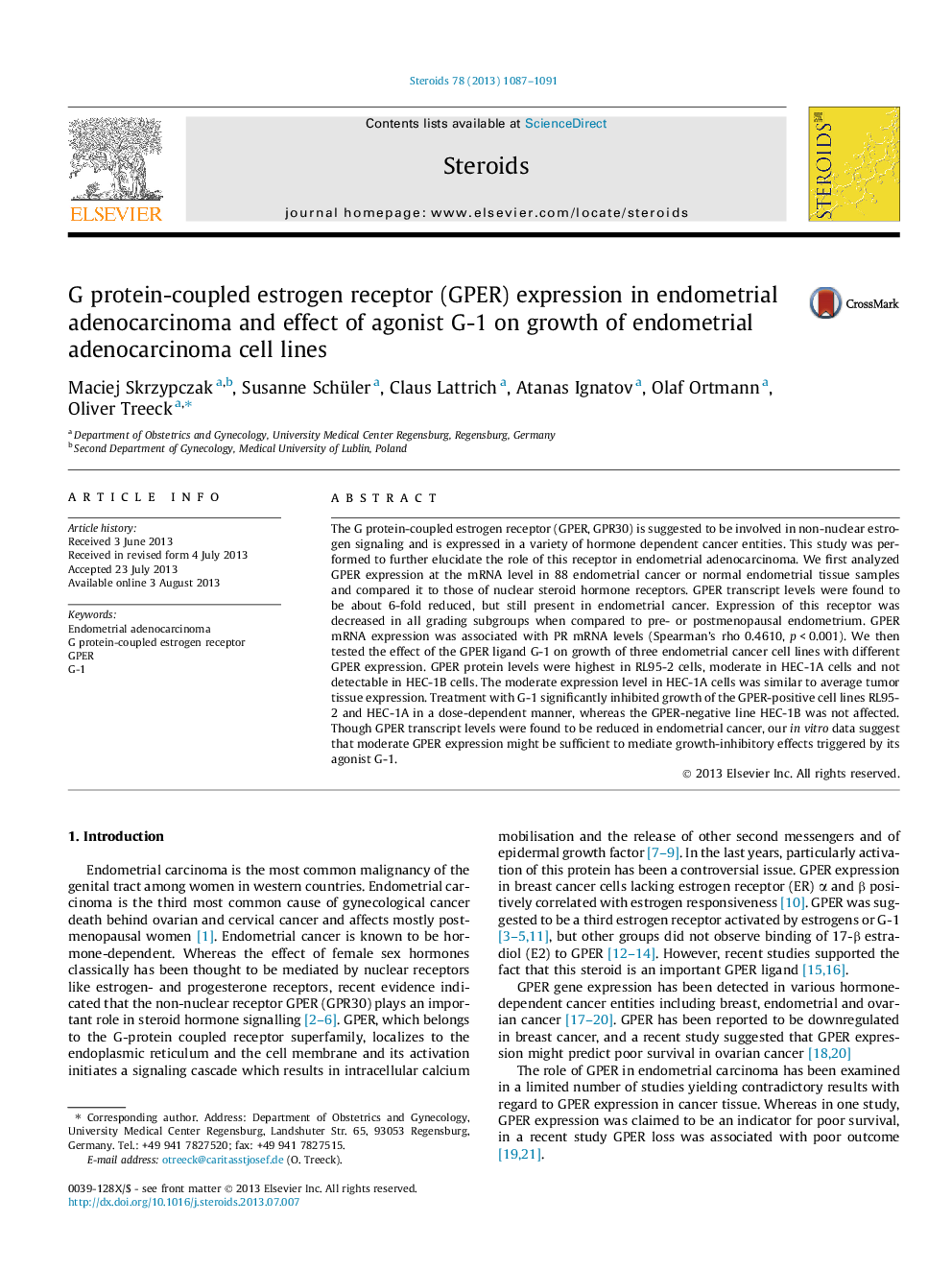| کد مقاله | کد نشریه | سال انتشار | مقاله انگلیسی | نسخه تمام متن |
|---|---|---|---|---|
| 2028176 | 1070399 | 2013 | 5 صفحه PDF | دانلود رایگان |

• Decline of G protein coupled estrogen receptor (GPER) mRNA in endometrial cancer.
• GPER expression level sufficient to mediate antiproliferative effects of agonist G-1.
• GPER transcript levels associated with progesterone receptor mRNA expression.
• GPER might be an interesting therapy target in endometrial adenocarcinoma.
The G protein-coupled estrogen receptor (GPER, GPR30) is suggested to be involved in non-nuclear estrogen signaling and is expressed in a variety of hormone dependent cancer entities. This study was performed to further elucidate the role of this receptor in endometrial adenocarcinoma. We first analyzed GPER expression at the mRNA level in 88 endometrial cancer or normal endometrial tissue samples and compared it to those of nuclear steroid hormone receptors. GPER transcript levels were found to be about 6-fold reduced, but still present in endometrial cancer. Expression of this receptor was decreased in all grading subgroups when compared to pre- or postmenopausal endometrium. GPER mRNA expression was associated with PR mRNA levels (Spearman’s rho 0.4610, p < 0.001). We then tested the effect of the GPER ligand G-1 on growth of three endometrial cancer cell lines with different GPER expression. GPER protein levels were highest in RL95-2 cells, moderate in HEC-1A cells and not detectable in HEC-1B cells. The moderate expression level in HEC-1A cells was similar to average tumor tissue expression. Treatment with G-1 significantly inhibited growth of the GPER-positive cell lines RL95-2 and HEC-1A in a dose-dependent manner, whereas the GPER-negative line HEC-1B was not affected. Though GPER transcript levels were found to be reduced in endometrial cancer, our in vitro data suggest that moderate GPER expression might be sufficient to mediate growth-inhibitory effects triggered by its agonist G-1.
Figure optionsDownload as PowerPoint slide
Journal: Steroids - Volume 78, Issue 11, November 2013, Pages 1087–1091